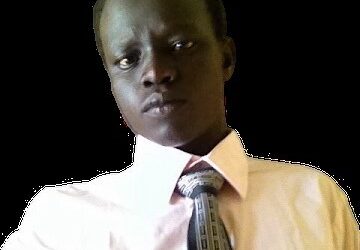Even scientists who deny the Bible are in concurrence with the verse which says a house built in a sandy place is less durable than that house built in a rocky place. When one’s foundation for education is weak, the likelihood of the whole education being weak is possible.
From 1990s up to around 2005, schools used to teach local dialects up to primary four. This used to lay a very strong foundation in many ways. It used to put pupils into the bucket of their respective cultures. It used to show pupils the commonalities among the various communities in South Sudan.
It used to introduce pupils to socioeconomic activities and the ancient way of life in the past. Above all, it used to instill an ability to pronounce words correctly. For instance, my own local dialect is Dinka and there was what we used to call “A E I O U” until the end. These were alphabetic letters arranged according to how they are pronounced and used in the wording. They used to help pupils in the pronunciation of words and a lot of stuff in education.
For example, when a pupil gets a word like “specialization”, it would not trouble that much pronouncing it. The pupil would apply his local dialect’s ability to separate the word into pronounceable segments, what they call syllable in English language. So, specialization would be segmented as spe-cia-li-za-tion, 5 syllables. This way, it would be so easy to pronounce it.
Though the first language affects the second language, which is English language, its great contribution to one’s education should not be forgotten. I’m of an opinion that pupils should be taught their local dialects up to primary four to lay down a good foundation for them. I also hold a strong opinion that students must not leap any class. However clever a student is, he/she must not skip any class until the end.
The format of education in South Sudan is 8 years in primary school, 4 years in secondary school and 4, 5 or 6 years in the tertiary education depending on the college a student is admitted in. This format should not be breached. Examination malpractices should be brought to an end so as to acquire quality education instead of acquiring quantity education as it is the case now.
The procurement of academic documents should be made punishable by the law. There is no need to buy academic credentials at the moment. There is no need to buy a Bachelor’s Degree, Masters or Ph.D at all. Almost everything is available to you now.
If you want a religious-based university, go to Catholic University of South Sudan. If you want a conducive university, go to Starford University. If you want a public university, go to the University of Juba or any other public university. If you have a job that needs your presence from 8:00-5:00 PM, then enrol for an Evening Class Program in the University of Juba which starts from 6:00-10:00 PM.
If you do not want to sit in class at all, then enrol for a distant learning program in the University of Juba. If you are old and you don’t want to share a class with your children’s agemates, enrol for a Mature Student Program in the University of Juba. So, education needs you by all means. It is you who is refusing to get education.
Looking at all this, you can find that the academic institutions have liquidised education for you, poured it into a jug and given it to you to drink. Once admitted, it is up to you to acquire marara education or cooked education. But I prefer you to acquire cooked education. It would be deemed an ignorance if one acquires marara education in this era where education is extra-simplified. With a strong foundation of education, leading to the acquisition of cooked education, one gets whatever he/she aspires for in life.
Thanks for reading “Sowing The Seed Of Truth”.




